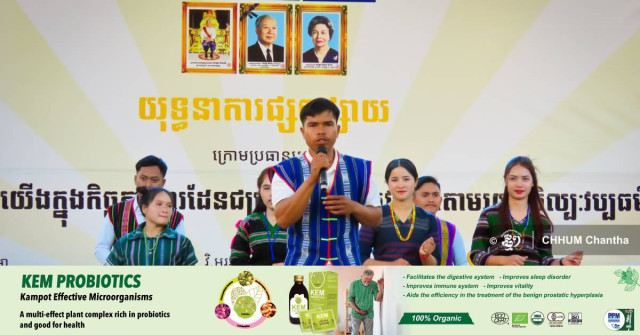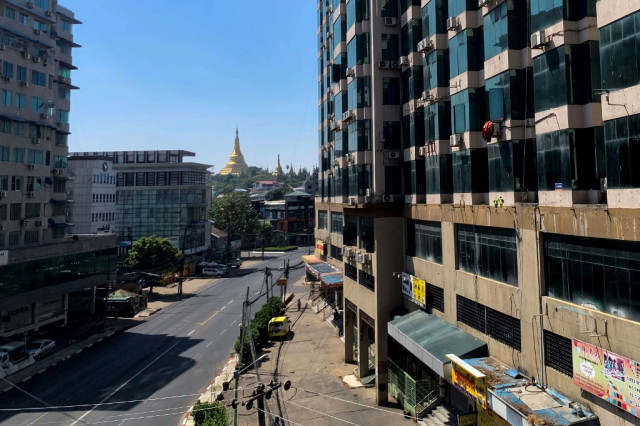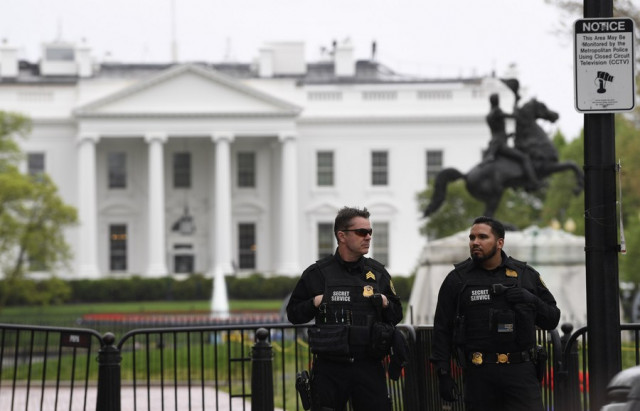Youth Use Music to Show Mondulkiri’s Resources

- By Meng Seavmey
- and Chhum Chantha
- January 24, 2024 7:10 PM
MONDULKIRI – Douk Yunas, a youth from the Bunong ethnic group, spent a week writing new lyrics from the Khmer to the Bunong language, based on a song from Sinn Sisamouth.
He changed the title from “Because of You” to “Forest Flower” and wrote the lyrics to describe the rich natural resources — such as waterfalls, hills, sanctuary areas and wildlife — in Mondulkiri province, where the Bunong people live.
"First, there's a woman in the song who is a tourist in Mondulkiri province and she wants to travel to the tourism destinations," he said.
“Then, a local man said 'there's Bousra waterfall on your left and the Jahoo Gibbon Camp on your right’.”
Yunas said the song shows the delights of gibbons, called jahoo in the Bunong language, because of the natural resources and thick forests in their home.
"Seeing this happiness, please tell the importance of forests and nature to the people who know when you go back home," the song says.
The lyrics were written specially for a three-day campaign organized by the World Hope International (Cambodia) to raise awareness of illegal deforestation and wildlife hunting, and to promote forests and wildlife protection among high school students in the province.
The campaign runs from Jan. 23 to 25 and is supported by the Ministry of Environment, USAID, Mission Alliance, REDD+, and the Wildlife Conservation Society.
As a youth from the Bunong ethnic group, Yunas calls on the public to help conserving forests and protect wildlife species because these are the oxygen and food chains for the ethnic groups and other people.
"Although the group has been depending on the natural resources such as plants and flowers, we are using them in our daily life sustainably because those are renewable resources," Yunas said.
"However, we are now conserving some of the resources that can be turned into eco-tourism, so that we can earn from it and from traditional performance instead of using more resources."
Indigenous ethnic groups represent 60 percent of the population in Mondulkiri province. Of these, Bunong account for 54 percent of the groups, according to the Mondulkiri Project organization.















